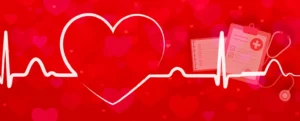10 Tips for Understanding High Blood Pressure and Hypertension Emergencies
High blood pressure, also known as hypertension, is one of the world’s leading cause of deaths in the world right now. In fact, according to facts and figures to be found frontlineer.com from The World Health Organization, it is the third leading killer in the world right now, with one out of eight deaths being attributed to high blood pressure. These numbers also show that there are a substantive number of people living with high blood pressure in the world right now, over one billion in number. In a nutshell, it is a condition where the long-term force of blood against your artery walls is high; high enough to eventually lead to health issues such as heart disease. Hypertensive emergency basically means that the blood pressure is so high that the pressure must be reduced immediately to prevent organ damage. A hypertension emergency can be quite scary to experience and can be life threatening. This article will look to highlight some tips that will help you understand more about high blood pressure and hypertension emergencies including some symptoms to look out for.
The first thing we should look at if we are to understand more about high blood pressure and hypertension emergency is those at increased risk of experiencing a hypertensive crisis. These include those patients with primary hypertension and those with secondary hypertension. The former is a condition where the cause of high blood pressure is unknown while the latter is whereby the high blood pressure accompanies conditions like cardiovascular disease, sleep apnea, renal disease among others.
In the same vein it is also important we understand some additional triggers that may lead to high blood pressure emergency. These include such things as surgery, taking of excess dietary salt or even an undetected hypertension that worsens. As such one should keep an eye out for that.
When looking to understand more about hypertension emergencies, it is important to shine a light at groups that may be more at risk of the same. This, as per the experts over at frontlineer.com, include males and African-Americans. Those between the age of 40 and 50 are also more likely to experience a hypertension emergency, with age in particular playing a key role on the same.
It is also important we highlight the levels of blood pressure associated with a high blood pressure emergency, verses that of the normal state. While normal blood pressure is below 120/80 mm Hg, a hypertensive emergency occurs when the level is at systolic over 180 and diastolic over 120 mm Hg. This sort of reading can damage organs if left unattended to, thus emergency.
The next thing we need to look at are some of the symptoms of high blood pressure emergency if we are at understand it better. These include severe chest pain, nausea and vomiting, severe anxiety, shortness of breath, seizures as well as unresponsiveness. Blurred vision may also be a symptom. If you present with this symptoms, looking for medical care is key as hypertension emergency is life threatening.
After the symptoms, the next thing we need to highlight are some of the causes of the high blood pressure emergency. One of the main causes, as is discussed on frontlineer.com is forgetting to take your blood pressure medication. Other causes include a heart attack, stroke, kidney failure, convulsions that occur during pregnancy otherwise known as eclampsia among others. Those that have experienced the above are quite likely to experience a hypertension emergency. If you are hypertensive, then the importance of taking your medication cannot be stressed highly enough given the consequences.
The next thing we need to look at are some of the commonly affected organs when it comes to hypertension emergencies. These include the kidney which could lead to renal failure, the heart and the cardiovascular system which could lead to congestive heart failure among others as well as the eye which has been known to retinal hemorrhages, papilledema among other consequences.
With the consequences highlighted above, prevention of hypertension emergencies is the next tip we will look at when looking to understand it. This is especially important if you are hypertensive. Some of the preventative measures include always taking your medication as prescribed, losing weight if overweight, exercising more, quitting smoking and cutting down on caffeine intake as well as alcohol intake, avoiding processed foods among others. Also eating healthy, including lots of fruits and vegetables is important as is cutting back on salt intake.
The next thing we will look at are the treatments one is put through if they happen to go into hypertension emergency. Given, as is discussed on frontlineer.com, hypertension emergencies may cause organ damage, the first thing is to be administered with first acting therapies to prevent or limit organ damage. Labetalol is the one commonly used and it is administered through an I.V in a hypertension emergency. Vasodilators like nitroglycerin are also used. One will also be transferred to a cardiac are unit for monitoring until their blood pressure returns to normal.
Finally, we should highlight the difference between hypertension emergency and urgency, the two hypertension crisis conditions. In hypertension urgency, blood pressure spikes but there is no risk of organ damage and it can be safely brought down within a few hours with medication, while hypertension emergency is when blood pressure spikes so highly that organ damage is imminent if the blood pressure is not reduced. Blood pressure here is also done in an intensive care unit of a hospital. Knowing the difference between these two is key if you are to understand more about high blood pressure emergencies.
The above are some of the tips to be aware off if you are to understand high blood pressure and hypertension emergencies with more on the same to be found on frontlineer.com.




